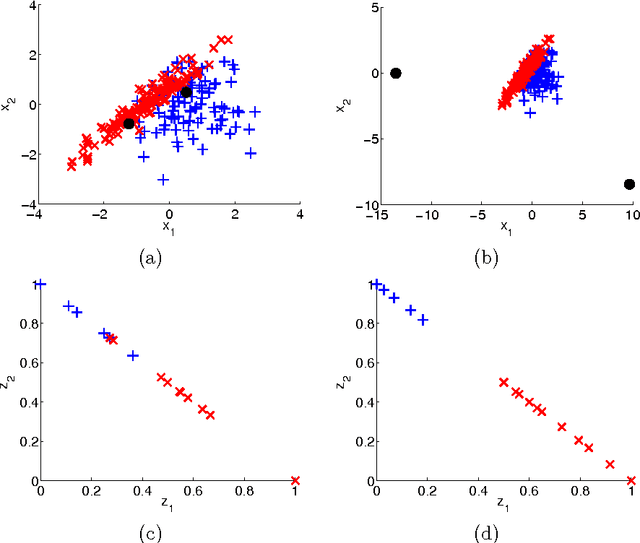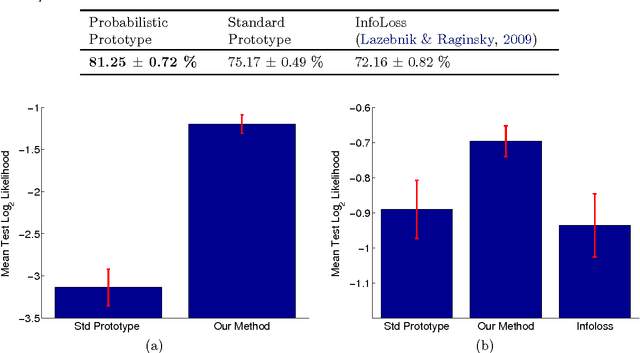Discriminative Probabilistic Prototype Learning
Paper and Code
Jun 18, 2012


In this paper we propose a simple yet powerful method for learning representations in supervised learning scenarios where each original input datapoint is described by a set of vectors and their associated outputs may be given by soft labels indicating, for example, class probabilities. We represent an input datapoint as a mixture of probabilities over the corresponding set of feature vectors where each probability indicates how likely each vector is to belong to an unknown prototype pattern. We propose a probabilistic model that parameterizes these prototype patterns in terms of hidden variables and therefore it can be trained with conventional approaches based on likelihood maximization. More importantly, both the model parameters and the prototype patterns can be learned from data in a discriminative way. We show that our model can be seen as a probabilistic generalization of learning vector quantization (LVQ). We apply our method to the problems of shape classification, hyperspectral imaging classification and people's work class categorization, showing the superior performance of our method compared to the standard prototype-based classification approach and other competitive benchmark methods.
 Add to Chrome
Add to Chrome Add to Firefox
Add to Firefox Add to Edge
Add to Edge